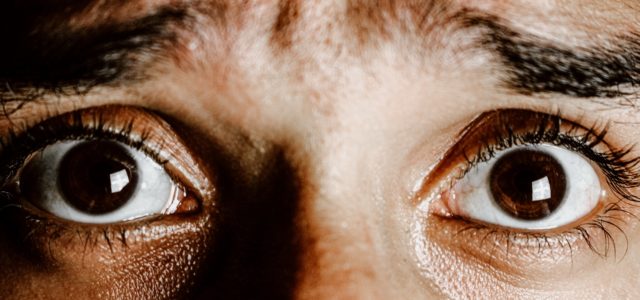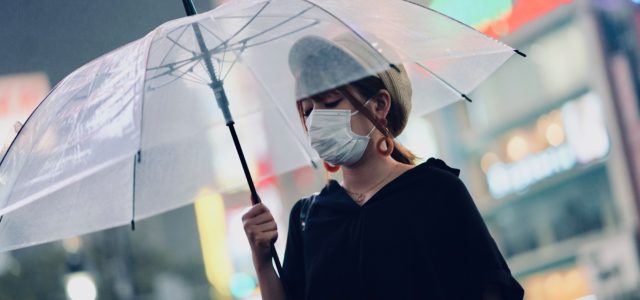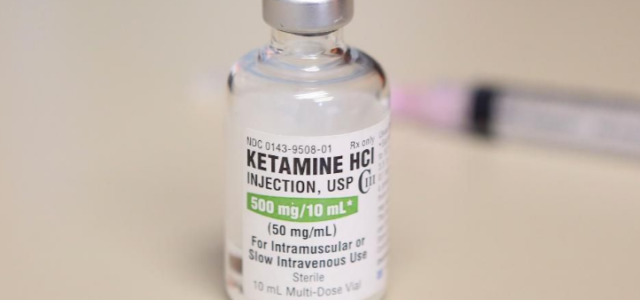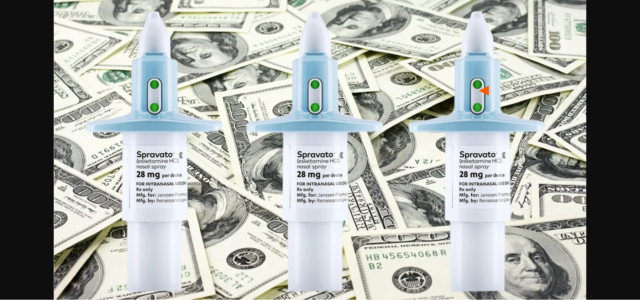Articles about Anxiety from Lori Calabrese, M.D. | The Ketamine Blog
When you feel that sense of dread or uneasiness about something in the present or in the future, that’s anxiety. Everybody feels that way at some point. An interview for a job, meeting your fiancee’s family, a major exam…. But for some people, the unpleasant dread can be overly intense and ongoing. When it’s so intense that it interferes with your life, causing you to miss work, or miss social opportunities… then it may be a disorder. These articles about anxiety shed light on the difference between moments of anxiety, and a lifetime with a severe, debilitating disorder.
Anxiety can be as mild as a transient feeling of butterflies, or so intense and overpowering you think you’re having a heart attack so you call 911.
Types of anxiety disorders:
1. Social anxiety
is the overpowering and relentless fear of being watched and judged by others. It can cause you to feel afraid to meet new people, to believe everyone in the room is talking about you, and to feel intensely self conscious in the presence of others. This is a serious mental health condition that can prevent you from interviewing for jobs or excelling at the one you have, or from meeting new people and building relationships.
2. Postpartum anxiety
This is emerging as a serious disorder in woman, at least as prevalent as postpartum depression. It can express symptoms like panic, fear of harming the baby, poor bonding with baby, obsessive worrying, inability to eat, sleep, or relax. Also, it can include the obsessive fear the panic will never resolve.
3. General anxiety disorder
obsessive and continuous worry about one’s health, work, social contacts and interactions, as well as daily routine circumstances and experiences…that repeat almost every day for at least six months.
4. Panic Disorder
Characterized by repeated and overwhelming panic attacks with accelerated pounding heart rate, sweating, trembling, shortness of breath, and feelings of impending doom. Often brought on by triggers, but not always. The attacks lead to a fear of the attacks, and a driving desire to avoid them, which can often lead to agoraphobia.
5. Test anxiety
Irrational dread of testing in spite of being well prepared. The anxiety can rise until the person’s displaying symptoms of panic like accelerated heart rate, headache, nausea and sweating. Can result in the mind going blank, and general functioning shuts down.
6. Phobia-related disorder
Agoraphobia – fear of enclosed public spaces, fear of open spaces
Arachnophobia – fear of spiders
Acrophobia – fear of heights
Dentophobia – fear of dentists
Claustrophobia – fear of enclosed, confined spaces
Aerophobia – fear of flying
Aquaphobia – fear of water
Zoophobia – fear of animals
Coulrophobia – fear of clowns – (not officially recognized but widely claimed)
7. Separation anxiety
Occurs in children and adults, and expresses as fear of being apart from people to whom they’re attached. They often worry that something terrible will happen to the person they’re connected to, and so avoid separation from that person as well as avoid being alone.
8. Selective mutism
A rare disorder in both children and adults where people don’t speak in specific situations, even though they have well developed language skills. It’s often associated with extreme shyness and fear of social embarrassment, and usually begins before the age of five.
9. Obsessive -Compulsive Disorder (OCD)
Considered to be connected to anxiety disorders, but there is controversy as to whether it belongs here. At the very least, that person who suffers from OCD has feelings of anxiety and usually feels powerless to control the intrusive thoughts they have, or their reaction to them.
This is not an exhaustive list, but rather examples of anxiety disorders.
Treatment of Anxiety Disorders
Some people suffer from a cluster of anxiety disorders and mood disorders combined, while some struggle with only one. Since anxiety disorders are best treated for the specific diagnosis, the more complex a person’s condition is, the more complex it may be to treat.
Transcranial Magnetic Stimulation (TMS)
demonstrates promising outcomes for some types of anxiety. Cognitive behavioral therapy shows the most promising outcomes as a form of psychotherapy. Psychotherapy combined with anxiolytic medicines, serotonin reuptake inhibitors (SRIs) and serotonin norepinephrine reuptake inhibitors (SNRIs) can be helpful, as well.
IV ketamine treatment has demonstrated favorable outcomes in some patients with some types of anxiety. Social anxiety can be debilitating and interfere with the desire to build life, family, and career. Ketamine treatment is one of the most effective treatments for social anxiety. There is exciting work being done with OCD patients and ketamine treatment also.
We invite you to continue reading the following articles about anxiety by Lori Calabrese, M.D.

Disasters can come in many forms… barring natural disasters like earthquakes or floods… political disaster and a rising pandemic sound pretty daunting. There’s the anxiety that accompanies voting tomorrow, and hopefully you’ve had the opportunity to vote early and avoid the big final voting day… Then add to that the OUTCOME of the vote the […]
Continue Reading

“The second wave of the coronavirus has begun,” they tell us. They say we’re in it now, and this will be worse than the first. How do you respond to announcements like this…with fear? Terror? Maybe anger? Some will… but you do have a choice. You don’t have to be the victim of your emotions. […]
Continue Reading

The sky grew darker as clouds morphed from white to gray, and created a solid ceiling over the city. It had rained off and on for days, and thunderstorms had filled the night skies with a threatening latticework of lightening. In an aggressive assault on the grayness, Evie stepped back from the window and decided […]
Continue Reading

Jocelyn and her friends missed their interaction on Friday nights after a week of work. They’d meet somewhere and have dinner and talk about work, their plans for the weekend, the people they knew, and their hopes for the future. But since the COVID-19 crisis, they worked from home and Friday was just another day. […]
Continue Reading

The President has declared a national emergency. Schools have been closed and gatherings cancelled. Your plans for Spring 2020 have been turned upside down. The news is filled with the increasing numbers of cases of this strange virus, and everywhere you turn, conversations focus on discussing the dangers and risks. What do you do with […]
Continue Reading

Treatment can help anxious moms relax and enjoy their babies. Jill was so excited to be pregnant. She’d waited for 4 years after she and Joe were married to start trying. She was just elated three months later when a home pregnancy test showed those two little lines. She was pregnant! Even the slightest thought of […]
Continue Reading

A new study finds that a nasal spray formulated from the anesthetic ketamine is a safe, fast-acting and effective treatment for treatment-resistant depression. Researchers presented the findings this week at the annual meeting of the American Psychiatric Association. Esketamine, the intranasal formulation of ketamine, recently received FDA approval as a depression treatment when used with an oral antidepressant, based […]
Continue Reading

Johnson & Johnson patented a form of the psychedelic with less research and a ridiculous price tag. In a popular and public move, the United States’ Federal Drug Administration recently approved intranasal esketamine, one of the components of the psychedelic ketamine, for treatment-resistant depression. The nasal spray costs nearly $900 per dose—or roughly $7,000 for the first month […]
Continue Reading

I just returned from the American Psychiatric Association’s 2019 Conference in San Francisco. This is the 175th Anniversary of the APA, and look how far we’ve come. The theme this year was: Revitalize Psychiatry – Disrupt – Include – Engage – Innovate. and it certainly provided fodder toward those goals. It was an informative and […]
Continue Reading

“Though I am often in the depth of misery, there is still calmness, pure harmony, and music inside me.” —Vincent Van Gogh May is Mental Health Awareness Month, and I’ve been thinking about how to disrupt the stigma of “mental illness.” It’s a term I don’t like – but it’s still used throughout the world, […]
Continue Reading









